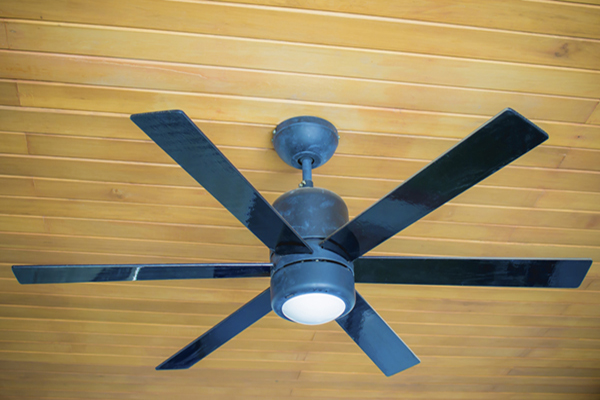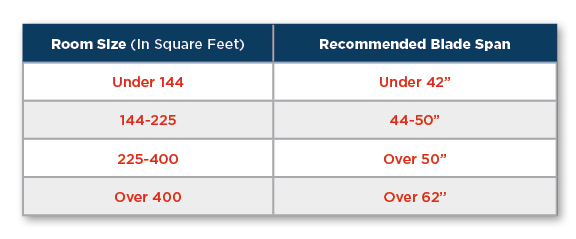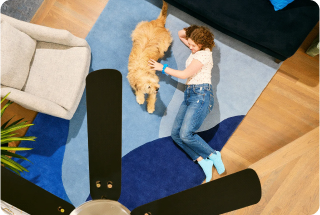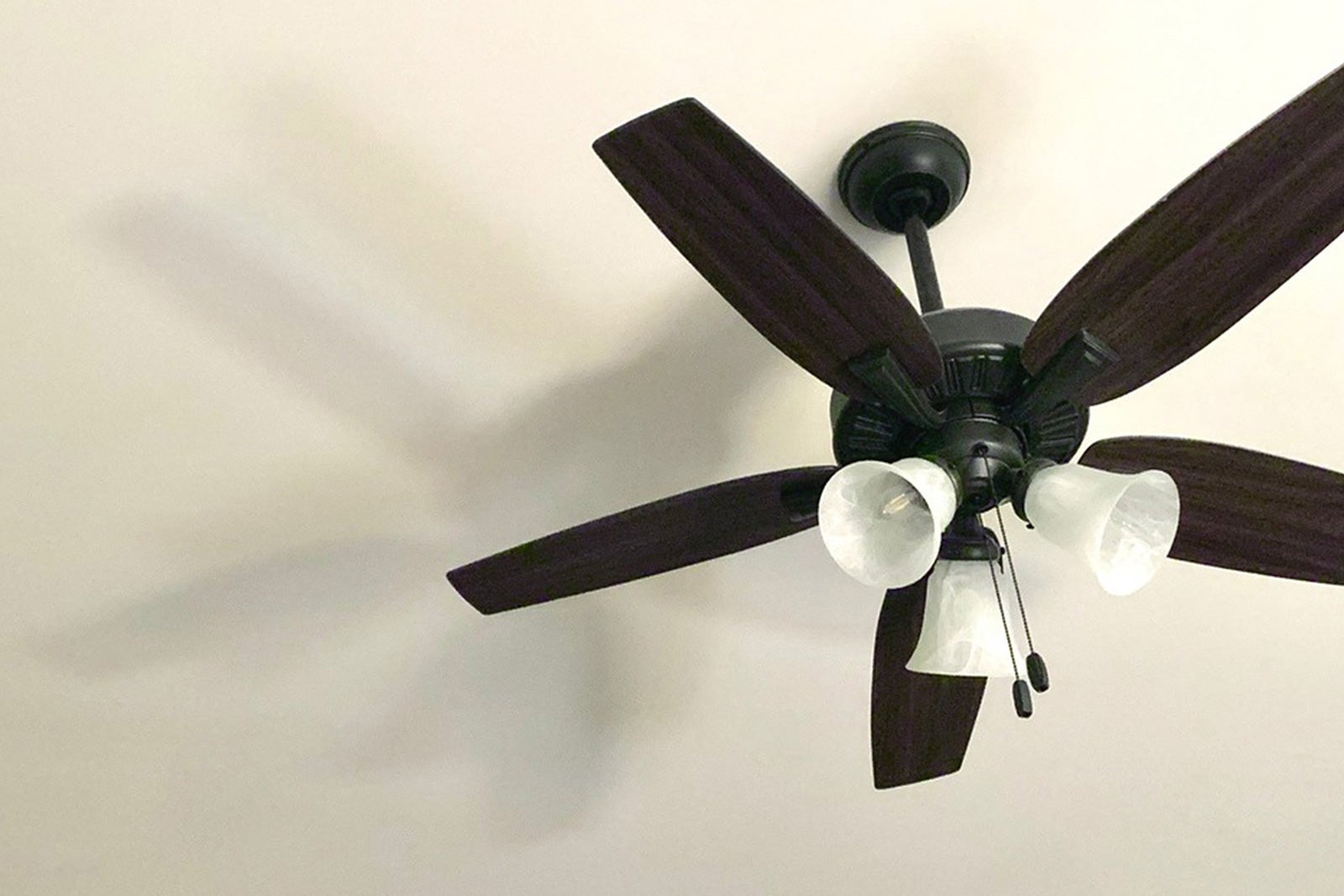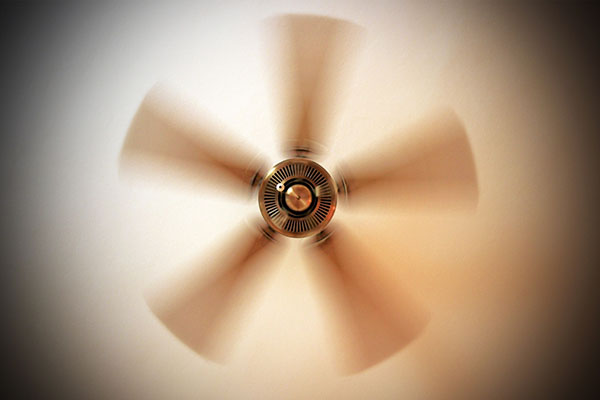2: Determine how high to hang your fan
How high you hang your ceiling fan and the type of mount you need depends on the height of your room and whether or not the ceiling is sloped. Hanging your ceiling fan at the right height will give you the best airflow.
For straight ceilings:
Ceiling height < 8 feet: Choose a ceiling fan with a flush mount. 7’ minimum distance from blades to floor.
Ceiling height > 8 feet: Choose a ceiling fan with a standard mount. 8’ minimum distance from blades to floor.
For sloped ceilings:
A sloped ceiling requires a slope mount to hang a ceiling fan. Make sure the fan is mounted at the middle of the room at an appropriate height. The distance from the floor to the fan blades must be minimum 8 feet.
Other ceiling fan recommendations:
- Choose a low profile ceiling fan for ceilings 8 feet or under
- Choose a ceiling fan with a downrod for ceilings 9 feet or greater
- Make sure the distance from the fan blades to either wall is a minimum of 18 inches
Step 3: Determine the right downrod
Choosing the right downrod is important so that you can mount your ceiling fan at a safe distance from your head. Follow the chart below for the correct length to choose:

Now that you know how to choose the right ceiling fan for your room, you can stay cool and keep the air flowing all year round. And when a ceiling fan isn’t enough during the warmest months, make sure your air conditioning is always in working order and that your fan is covered with an American Home Shield® Home Warranty.
Sources:
https://www.consumeronlinereport.com/3-simple-steps-to-size-a-ceiling-fan/
https://www.delmarfans.com/educate/basics/what-size-ceiling-fan-do-i-need/
